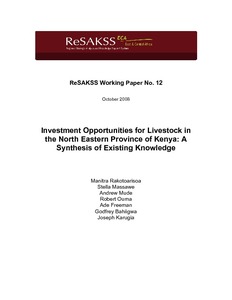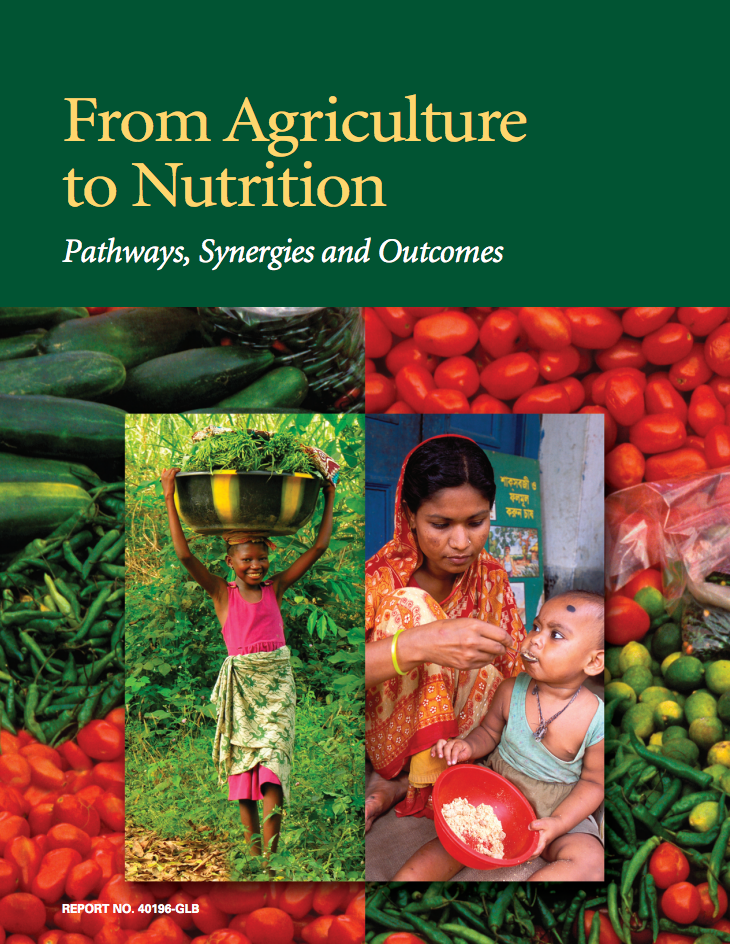Focal point
Location
About IFPRI
The International Food Policy Research Institute (IFPRI) provides research-based policy solutions to sustainably reduce poverty and end hunger and malnutrition in developing countries. Established in 1975, IFPRI currently has more than 500 employees working in over 50 countries. It is a research center of theCGIAR Consortium, a worldwide partnership engaged in agricultural research for development.
Vision and Mission
IFPRI’s vision is a world free of hunger and malnutrition. Its mission is to provide research-based policy solutions that sustainably reduce poverty and end hunger and malnutrition.
What We Do
Research at IFPRI focuses on six strategic areas:
- Ensuring Sustainable Food Production: IFPRI’s research analyzes options for policies, institutions, innovations, and technologies that can advance sustainable food production in a context of resource scarcity, threats to biodiversity, and climate change. READ MORE
- Promoting Healthy Food Systems: IFPRI examines how to improve diet quality and nutrition for the poor, focusing particularly on women and children, and works to create synergies among the three vital components of the food system: agriculture, health, and nutrition. READ MORE
- Improving Markets and Trade: IFPRI’s research focuses on strengthening markets and correcting market failures to enhance the benefits from market participation for small-scale farmers. READ MORE
- Transforming Agriculture: The aim of IFPRI’s research in this area is to improve development strategies to ensure broad-based rural growth and to accelerate the transformation from low-income, rural, agriculture-based economies to high-income, more urbanized, and industrial service-based ones. READ MORE
- Building Resilience: IFPRI’s research explores the causes and impacts of environmental, political, and economic shocks that can affect food security, nutrition, health, and well-being and evaluates interventions designed to enhance resilience at various levels. READ MORE
- Strengthening Institutions and Governance: IFPRI’s research on institutions centers on collective action in management of natural resources and farmer organizations. Its governance-focused research examines the political economy of agricultural policymaking, the degree of state capacity and political will required for achieving economic transformation, and the impacts of different governance arrangements.
Research on gender cuts across all six areas, because understanding the relationships between women and men can illuminate the pathway to sustainable and inclusive economic development.
IFPRI also leads two CGIAR Research Programs (CRPs): Policies, Institutions, and Markets (PIM) andAgriculture for Nutrition and Health (A4NH).
Beyond research, IFPRI’s work includes partnerships, communications, and capacity strengthening. The Institute collaborates with development implementers, public institutions, the private sector, farmers’ organizations, and other partners around the world.
Resources
Displaying 841 - 845 of 1521Improving farm-to-market linkages through contract farming
Contract farming is emerging as an important form of vertical coordination in the agrifood supply chain in India, and its socioeconomic consequences are attracting considerable attention in public policy debates. This study is an empirical assessment of the costs and benefits of contract farming in milk using information generated through field surveys in the western state of Rajasthan. Contract farming is found to be more profitable than independent production. Its major benefits come from a reduction in marketing and transaction costs, which are otherwise much higher in the open markets.
Investment Opportunities for Livestock in the North Eastern Province of Kenya: A Synthesis of Existing Knowledge
Pastoralism is the dominant livelihood activity in the North Eastern Province (NEP) of Kenya. It is supplemented only by a limited amount of agriculture along the rivers. The province faces various developmental challenges including chronic poverty and food insecurity, low human capital and poor health standards, high vulnerability to climate change, poor infrastructure, insecurity and low crop and livestock productivity.
Agricultural Growth and Investment Options for Poverty Reduction in Zambia
Zambia has experienced strong economic performance since 1999. However, agriculture has not performed as well as the rest of the economy, and although the incidence of poverty has declined, it still
remains high. The Zambian government, within the framework of the Fifth National Development Plan
From Agriculture to Nutrition: Pathways, Synergies and Outcomes
In a world of food abundance, millions of people suffer from poor nutrition. In some parts of the world, the poor have inadequate access to energy from food to meet their energy requirements. In these locations, food shortage is often a seasonal phenomenon and micronutrients are also generally lacking in the diet. Elsewhere, there is a stable supply of energy but the poor have monotonous diets lacking in essential micronutrients.






